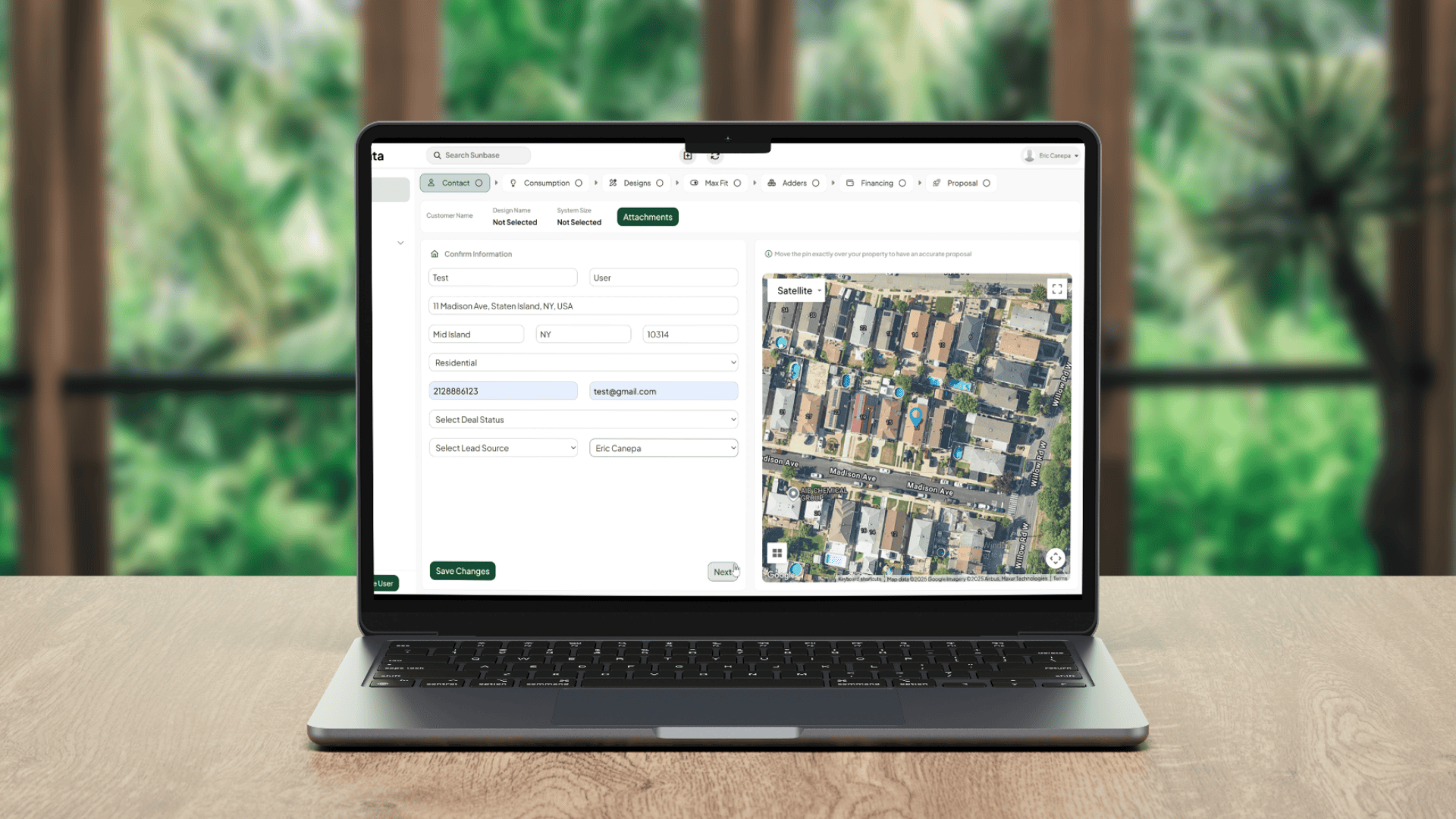March 23, 2023
What is a CRM?
A CRM is a software application designed to provide businesses with a comprehensive solution to manage their customer relationships.
It allows companies to store customer data, track orders and sales, generate leads and opportunities, monitor marketing campaigns, contact management and much more. By streamlining these operations, businesses can better understand their customers’ needs and build stronger relationships with them.
CRM solutions are also highly customizable, enabling users to tailor the platform to their unique business requirements. This includes personalizing automated emails and marketing campaigns for each customer segment or developing specialized workflows for different teams or departments.
Benefits of customer relationship management
The benefits of customer relationship management (CRM) for businesses are numerous. By utilizing a CRM system, organizations can improve their efficiency and the quality of their customer service. This can help improve customer satisfaction, increase sales conversions and customer retention and ultimately grow revenue.
Some of the key benefits of CRM include:
Improved customer segmentation
With comprehensive data about customers, organizations can create more effective segmentation strategies based on customer preferences, behaviors, purchase histories, and other factors.
Automated marketing
A CRM platform enables businesses to automate the sales process and create automated campaigns through marketing automation software that is tailored to individual customers or segments. This helps companies stay top-of-mind with customers and drive repeat purchases or upsells.
Easier lead generation
With the right CRM tools in place, businesses can quickly identify potential leads and build stronger relationships with them. This increases the chances of conversion by providing personalized outreach at scale.
Improved customer service
A CRM solution makes it easier for a business to track past customer interaction and ensure consistent service across different channels. It also allows teams to quickly access customers’ data when needed and follow up faster on inquiries or complaints.
Increased sales forecasting accuracy
By tracking customer data over time, a CRM system helps businesses accurately predict sales trends and optimize operations accordingly. This helps streamline production processes and limit waste spending.
Types of CRM
There are several different types of CRM systems that businesses can use to manage customer relationships.
Each type has its own advantages and disadvantages, so it’s important for organizations to evaluate their needs and choose the best option for their unique business development requirements.
The three most popular types of CRM include:
Operational CRM
Operational CRM is an enterprise-level software system that helps manage customer relationships and sales activities.
It provides tools for automation, such as tailored emails and marketing campaigns. It also allows teams to quickly access customers' data when needed and follow up faster on inquiries or complaints.
With this software in place, organizations are able to gain valuable insights into their customers’ needs, foster stronger business relationships with them and improve customer loyalty and satisfaction levels.
Analytical CRM
Analytical CRM is a type of customer relationship management (CRM) solution that allows organizations to easily spot patterns, trends and correlations in customer behavior and customer lifetime value giving them the ability to target their marketing efforts.
Analytical CRM solutions also enable businesses to make better decisions by highlighting key performance indicators (KPIs) and providing real-time analytics.
Analytical CRM systems are designed to be used by marketers, sales reps, product managers and other team members who need access to reliable data in order to make sound decisions. These solutions are typically cloud-based, allowing teams to access customer information anytime, anywhere.
Collaborative CRM
Collaborative CRM is a type of customer relationship management software designed to facilitate collaboration between the sales team and departments.
It enables employees to access customer data and work together on sales, business processes, marketing, and service tasks. makes it easier for organizations to scale their operations as needed.
Collaborative CRM solutions help organizations improve team efficiency by giving all stakeholders access to the same customer data in real time. This makes it easier for teams to stay on top of their tasks, provide better customer service and increase overall sales conversions.
How does CRM work?
CRM systems work by helping organizations to gain insights into their customer base and manage customer relationships more efficiently.
By capturing, storing and analyzing customer data, CRM solutions provide companies with detailed information about their customers’ behaviors, preferences and buying patterns. This helps to improve business relationships and them better understand the needs of their customers and tailor their marketing efforts accordingly.
With CRM software in place and an active sales team, businesses can quickly identify potential leads and build stronger relationships with them.
Automation CRM tools are also available to help personalize outreach at scale. The software makes it easier for customer service teams to access customers’ data when needed and follow up faster on inquiries or complaints, improving overall customer service levels.
CRM also provides valuable analytics that enables businesses to accurately predict sales trends based on past customer interactions and optimize operations accordingly.
Additionally, collaborative CRM solutions enable teams to access real-time customer data from any location, allowing for smoother collaboration between departments and a higher level of efficiency in the organization as a whole.
Components of a CRM system
A CRM system typically consists of several components that work together to enable organizations to effectively manage customer relationships.
Customer database management
Customer database management is an essential component of a CRM system and enables organizations to store, access and manage customer data in one central location.
With CRM software in place, companies can store detailed customer records that include contact information, purchase history, demographics and other relevant data. Furthermore, many CRM solutions offer powerful search functions that allow teams to quickly find customer data when needed.
They can also use this data to target their marketing efforts more effectively based on their customers’ past actions. Additionally, stored customer data can be used to quickly provide personalized service in response to inquiries or complaints, helping businesses build stronger relationships with their customers.
Sales and marketing automation
Discover the power of collaborative CRM. With our powerful customer database management tools, you can store and access your customer data in one central location.
Sales and marketing automation solutions allow you to target your sales rep and efforts with accuracy, increasing conversions and improving customer service levels.
Analytics and reporting
Analytics and reporting are key components of a CRM system, providing valuable insights into customer behavior and how to optimize operations accordingly.
This data can be used to accurately predict sales trends based on past customer interactions, enabling sales teams to make informed decisions about how to best serve their customers’ needs.
CRM systems also provide detailed reports that enable organizations to track the performance of campaigns, evaluate customer segmentation strategies, and measure overall user engagement.
Overall, CRM solutions provide businesses with a comprehensive view of their customers’ behaviors and purchasing patterns so they can better tailor their outreach efforts in line with current trends.
Collaboration and communication
Collaboration and communication are key elements of any successful business. By utilizing it, organizations can increase the efficiency and accuracy of their customer service efforts by having a centralized repository of customer data that is shared between departments.
CRM systems also allow businesses to tailor their outreach strategies based on real-time analytics, enabling them to optimize campaigns for maximum effectiveness.
Furthermore, collaboration tools built into many CRM platforms enable distributed teams to easily share insights with one another, which can ultimately lead management to more informed decisions that result in higher customer satisfaction levels.
How do businesses use CRM software?
Businesses across a wide range of industries use CRM to better understand their customers and optimize their customer service operations. Here are the most used features of CRM software.
Sales management
CRM systems offer an array of features and tools that can be used to manage sales operations. From tracking customer purchase histories and profiling customers according to their preferences to managing the sales process from lead generation to order fulfillment, businesses can utilize it to coordinate the entire sales cycle.
Utilizing CRM for managing sales operations enables businesses to gain valuable insights into customer behaviors while streamlining their overall workflow processes resulting in higher customer satisfaction levels and increased profits.
Marketing management
Improve your marketing strategy and increase sales conversions with CRM software. With real-time data analysis, you can spot any potential issues before they become major problems.
Plus, get a comprehensive view of customer behaviors and purchasing patterns so you can tailor your outreach strategies for maximum effectiveness.
Customer service management
Customer service management is a key factor for any successful business. CRM allows organizations to provide excellent customer service by providing a comprehensive view of customer behaviors and preferences and enabling teams to quickly respond to customer inquiries or complaints.
By utilizing powerful analytics, organizations can better understand their customers’ needs in order to provide more personalized customer experiences that result in increased satisfaction levels.
From managing sales operations and tracking customer information to automating support and customer services, - CRM offers a versatile platform for creating memorable experiences for customers and driving long-term success for businesses alike.
Customer data management
Customer data management is a critical element for businesses of all sizes. With the help of a CRM system, companies can store and organize customer data in one centralized repository for easy access. This allows teams to create detailed customer profiles that capture important information like contact details, purchase histories, preferences, and more.
With the use of automated workflows and chatbots, companies can provide personalized customer service at scale while reducing overall workloads. By utilizing customer data effectively, organizations can build strong relationships with customers resulting in higher satisfaction levels and increased profits over time.
Choosing the right CRM software
Choosing the right CRM software is essential for any successful business looking to gain valuable insights into their customers’ behaviors while increasing overall team efficiency and customer satisfaction levels. By taking into account these key factors when selecting a CRM system, organizations can create memorable experiences for customers and drive long-term success for their business.
Factors to consider
When it comes to choosing the right CRM software for your business, there are a few key factors you need to consider. First and foremost, you need a solution that is tailored to your specific industry and designed to meet the needs of your customers.
The best CRM solutions offer advanced features such as analytics and reporting capabilities that allow organizations to better understand customer behaviors and preferences in order to provide more personalized customer experiences.
Automation features such as chatbots can also be used to provide support services at scale while reducing overall workloads.
Another important consideration when selecting a CRM system is scalability. It's important to choose a solution that can easily scale up or down depending on the size of your organization so that you can ensure an efficient workflow process without sacrificing quality.
Additionally, ensure that the CRM system meets all your security requirements so that all customer data remains secure at all times.
Popular CRM systems
Popular CRM systems include Sunbase, Salesforce, Oracle, SAP, and Microsoft Dynamics.
Sunbase provides a comprehensive platform for managing sales operations and tracking customer information, as well as automating support services to reduce workloads while providing superior customer service.
Salesforce is one of the most popular CRM systems on the market and is known for its comprehensive suite of customer relationship management tools.
Oracle offers a suite of cloud-based software solutions that provide businesses with powerful analytics and reporting capabilities to gain valuable insights into their customers' behaviors.
SAP offers an integrated suite of application services intended to help organizations manage customer data more effectively as well as improve customer service.
Finally, Microsoft Dynamics is a powerful cloud-based solution that offers intelligent services such as predictive analytics and machine learning to deliver personalized customer experiences.
Implementing a CRM
Implementing a CRM system is an essential element of any business. It can provide invaluable insights into customer behaviors, preferences, and buying patterns while enabling businesses to respond quickly and effectively to customer inquiries or complaints.
To ensure successful CRM implementation, businesses should carefully consider their individual needs and the features they require from such a system.
Challenges of implementation
Implementing a Customer Relationship Management (CRM) system can be a complex and challenging process. Some of the key challenges that organizations may face when implementing a CRM system include:
Data Integration
One of the biggest challenges is integrating data from various sources into the CRM system. Data may be stored in multiple locations and in different formats, which makes it difficult to consolidate and synchronize. This requires significant effort to ensure data accuracy and consistency.
Employee Resistance
Employees may resist the adoption of new technology, particularly if it disrupts their existing work processes. They may view the CRM system as a threat to their job security or may be skeptical about its benefits. This can lead to low adoption rates and limit the system's effectiveness.
Training and Support
Proper training and ongoing support are essential to ensure that employees are comfortable and competent in using the CRM system. This requires investment in resources and time to train employees on the new system and provide ongoing support as needed.
Cost
Implementing a CRM system can be expensive, particularly for small and medium-sized businesses. The cost of software licenses, hardware, implementation services, and ongoing maintenance can be significant. Organizations need to carefully evaluate the cost-benefit ratio of investing in a CRM system.
Customization
Organizations may have unique requirements and workflows that require customization of the CRM system. This can be time-consuming and may require significant technical expertise. It may also make the system more complex, which can increase the risk of errors and limit scalability.
Data Security and Privacy
The CRM system will contain sensitive customer information, such as personal details such as contact details, purchase history, and communication preferences. Ensuring the security and privacy of this data is critical to protect the organization's reputation and complying with regulatory requirements.
Overall, implementing a CRM system requires careful planning, a clear understanding of business requirements, and a commitment to ongoing support and improvement.
Tips for successful implementation
For successful implementation, it is essential to thoroughly research potential CRM software options to find one that best fits the organization's needs and objectives.
Popular CRMs such as Sunbase offer comprehensive features and tools that enable organizations to track customer data, create detailed profiles, automate workflows, generate reports, and more.
To ensure a successful transition to a new CRM system, businesses should break down the implementation process into smaller steps and set realistic timelines for completion.
Automation can also help streamline processes such as data entry and reporting. Additionally, companies should consider investing in data migration services for the smooth integration of existing customer information into the new system.
Future of CRM technology
The future of CRM technology is bright and promising. As businesses become increasingly data-driven, the need for powerful CRM solutions will only grow.
To meet this demand, software developers are continuously innovating to build better tools and features that enable businesses to effectively manage customer relationships.
Advances in CRM technology will continue to revolutionize how businesses engage customers by streamlining operations and improving the user experience across all touchpoints — from marketing campaigns to sales conversations — transforming the way business is conducted around the world.
About Sunbase
Sunbase helps solar companies succeed through a suite of Solar CRM tools like Solar Lead Management Software, Solar Proposal Software, etc.! To book your free demo or an appointment, contact us here.
I agree to receive marketing messaging from Sunbase at the phone number provided above. I understand data rates will apply, and can reply STOP to OPT OUT.











